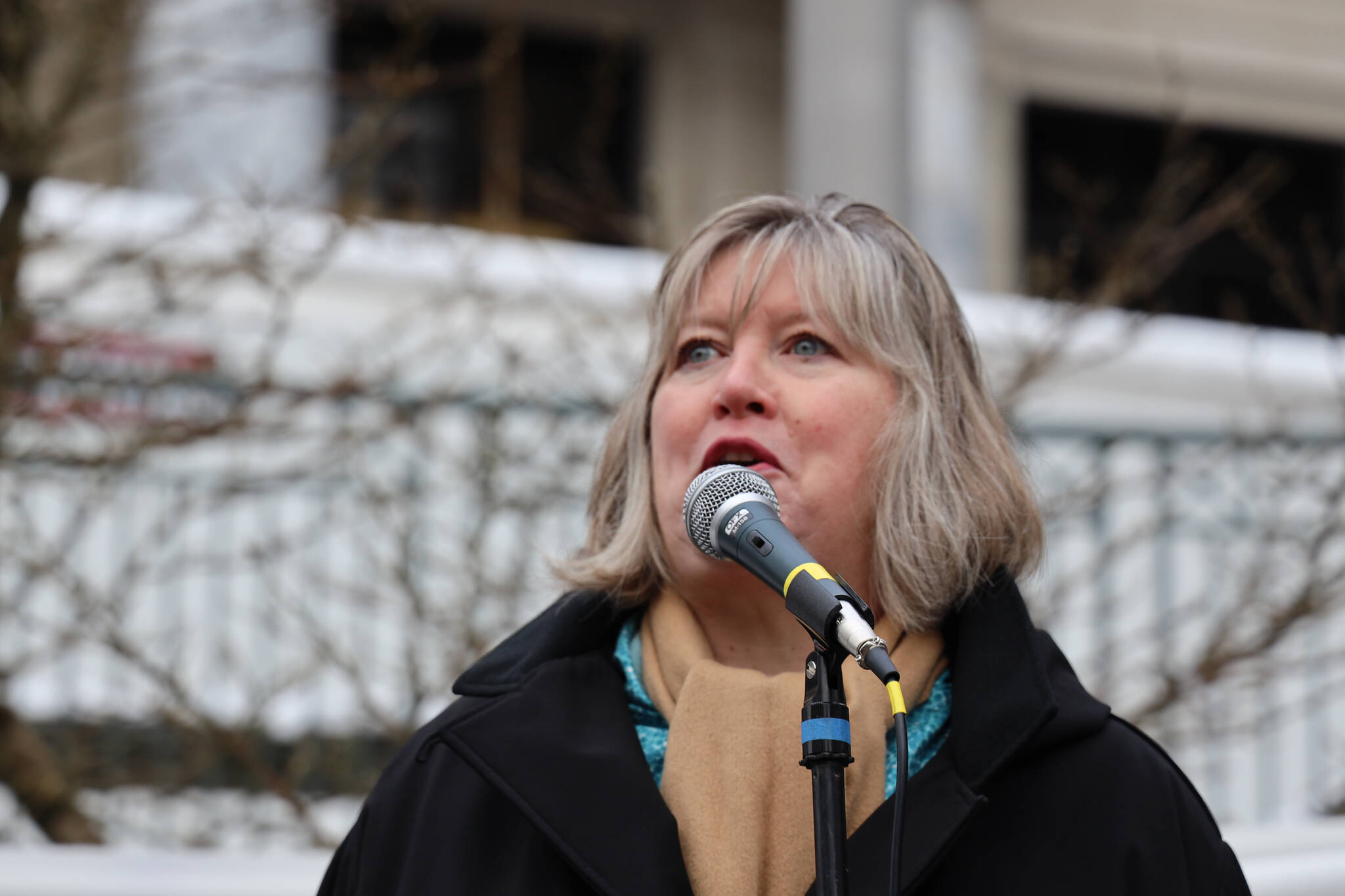Editor’s note: This article includes references to suicide. The 988 Suicide and Crisis Lifeline is available 24/7.
A bill to ban licensed practitioners from performing “conversion therapy,” a largely discredited practice that attempts to change a person’s gender identity or sexual orientation, is awaiting its first public hearing in the state House Health and Social Services committee.
If passed, the bill would ban licensed physicians, psychiatrists and other “practitioners of the healing arts” from providing conversion treatment to minors or vulnerable adults in the state. Religious organizations would be exempted from the ban.
According to the bill’s sponsor, Rep. Sara Hannan, a Juneau Democrat, the bill would have real-world impacts in addressing high suicide rates among Alaska’s LGBTQ+ youth.
“Death by suicide is a very real and tragic thing, and anyone who is led to think they are not worthy of being alive deserves hope,” she said. “Any thought of restricting guns makes it more controversial and it’s a hard battle to identify, but here is a practice that medical practitioners say is not a healthy practice and I think it’s something we can do to reduce our suicide death rates.”
According to a 2020 report by Alaska’s health department , suicide was the leading cause of death for teens over 15 years old in the state, and Alaska’s adolescent suicide rate has consistently been around three times higher than the national average in recent years.
Similarly, a nationwide survey found 45% of LGBTQ+ youth seriously considered attempting suicide within the past year, according to a 2022 survey by the Trevor Project, a California-based LGBTQ youth advocacy group.
Another study by Family Acceptance Project found suicide attempts for lesbian, gay, bisexual and transgender youth who reported both home-based efforts to change their sexual orientation by parents and intervention efforts by therapists and religious leaders were more than 60% higher than those who reported no conversion experiences.
State of the states and cities
Laws against conversion therapy at the state level have received a mixed response nationwide. Currently, more than 20 states and the District of Columbia have placed bans on conversion therapy for minors, according to Movement Advancement Project, and most recently, Minnesota’s House of Representatives passed a bill on Monday supporting a ban in the state.
However, its neighboring state, Wisconsin, recently had its 2020 ban suspended after Republicans voted in early January to allow licensed practitioners to resume carrying out conversion therapy in the state.
In Alaska, There is currently no statewide policy prohibiting the practice which has been discredited by many medical and civil rights organizations in recent decades, including the American Psychological Association, American Medical Association and American Psychiatric Association.
In 2020, Anchorage became the first municipality in Alaska to pass an ordinance that prohibited the practice, and while other municipalities have discussed it, such bans have not become widespread across the state. According to City and Borough of Juneau City Manager Rorie Watt, Juneau has not taken any similar action.
Hannan said the bill is too early in the process for her to feel confident that it will make it to the finish line. She noted it will likely be an uphill battle especially because she is in the minority. This is her second attempt to pass a bill banning license practitioners from engaging in the practice.
The bill has local support.
Emily Mesch, president of Southeast Alaska LGBTQ+ Alliance, said SEAGLA supports the bill and said it’s an action that costs nothing to the state but could result in a decline in the state’s suicide rates, which she said practice only serves to increase the rate of suicide.
“Taking away licenses is the first step in preventing harm by professionals,” she said, calling the practice on minors “a form of torture.”
“This is the action that is possible right now and it’s a step that should be taken — conversion therapy of all kinds should not happen,” Mesch said. “At the end of the day it’s about saving lives — it puts mental health at risk, it puts lives at risk, it makes life miserable — it shouldn’t happen,” she said.
• Contact reporter Clarise Larson at clarise.larson@juneauempire.com or (651)-528-1807. Follow her on Twitter at @clariselarson.

